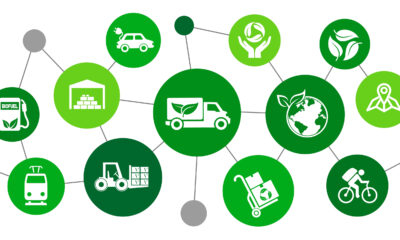

Economy
More than one in ten businesses believe slavery in their supply chain is ‘likely’
Though more than one in 10 businesses say it is likely that their supply chain features slaves, supply chain risks reached an 18-month low in the second quarter, according to new research. However, concerns have been raised that increasing political and social instability could impact businesses.
According to research from the Chartered Institute of Purchasing and Supply (CIPS), 11% of business leaders that have a supply chain think it is likely that modern slavery is playing a role somewhere along the line. The organisation said these findings suggest that businesses have reverted to a ‘don’t ask, don’t tell’ policy when it comes to their supply chains.
This policy is also reflected in consumers, with only 30% considering the country a product is sourced from and just a quarter saying they care about how their products are sourced.
David Noble, group CEO of the CIPS, explained that in order for the Modern Slavery Bill to have a chance of eliminating slavery from British supply chains and businesses and to avoid a repetition of the horsemeat scandal, then it must empower procurement professionals within their businesses.
“A professional ‘licensing’ of all supply chain and procurement professionals is becoming critical to avoid the UK sleepwalking into another supply chain crisis,” he added.
The Modern Slavery Bill is one of the first in the world and is designed to address the issues of slavery and trafficking in the 21st century. It includes legislation that will increase the maximum sentence for the most serious offenders and close loopholes around enforcement powers at sea.
Being involved in modern slavery can impact businesses, and as a result, shareholder value, in a number of ways, including reputational damage, potential lawsuits and regulatory fines.
Despite these risks, CIPS’s latest index suggests global supply chain risks reached an 18-month low in the second quarter of 2014. The index’s, which tracks the effects of political, economic and social factors on the security of global supply chains, fall was in large part due to the German industrial recovery and the country’s exports shoring up supply chains across Europe.
However, the mounting human costs of the Ebola outbreak in West Africa could see the region become isolated in world trade. So far the virus has not led to major disruptions for supply chains but that could change if it continues to spread.
CIPS also note that the escalation in the Arab-Israeli conflict and the evacuation of workers from Kurdish Iraq could lead to instability in supply chains operating in this region.
John Glen, CIPS economist and senior economist lecturer at The Cranfield School of Management, said, ”Global supply chains still face significant risks.
“The Ebola outbreak in West Africa, combined with, potential unrest in the Ukraine, Iraq and Libya, have the potential to create significant risks to global supply chains. These risks must be monitored and managed and where necessary contingency plans must be developed.”
Photo: Imagens Evangélicas via Flickr
 Further reading:
Further reading:
Qatar announces labour reform following accusations of slavery
UK’s modern slavery bill gets its second reading
South African gold miners protest over ‘slave wages’


 Environment12 months ago
Environment12 months agoAre Polymer Banknotes: an Eco-Friendly Trend or a Groundswell?

 Features11 months ago
Features11 months agoEco-Friendly Cryptocurrencies: Sustainable Investment Choices

 Features12 months ago
Features12 months agoEco-Friendly Crypto Traders Must Find the Right Exchange

 Energy11 months ago
Energy11 months agoThe Growing Role of Solar Panels in Ireland’s Energy Future






























